Donald Trump's victory in the 2024 US election and his threat to impose tariffs on all imports into the country highlight a key issue for the global economy .
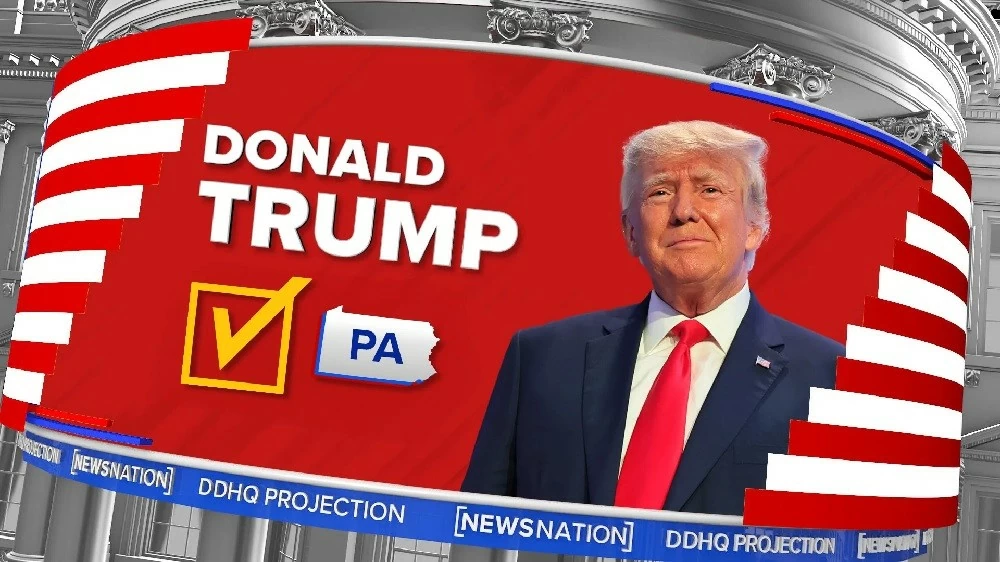 |
| Donald Trump won a convincing victory in the 2024 election, becoming the 47th President of the United States. (Source: Newsnation) |
Strong tax enforcement
The United States is a technological powerhouse, spending more than any other country on research and development. In the past five years, the United States has also won more Nobel Prizes than all other countries combined.
America's inventions and economic success are the envy of the world . But the rest of the world must do everything in its power to avoid becoming too dependent on the country.
| At noon on November 6, Vietnam time, the results of the 2024 US presidential election were decided with Republican candidate Donald Trump winning convincingly. According to the preliminary vote count results as of 2:40 p.m. updated by 270 to Win , Mr. Trump won 280 electoral votes, exceeding the minimum required - 270 votes by law and thereby defeating Democratic candidate Kamala Harris to become the 47th president of the United States. |
Mr. Trump’s “America First” approach is truly bipartisan. At least since former President Barack Obama’s energy independence policy, Washington has focused on the domestic issue of maintaining technological supremacy while ending the offshoring of industrial jobs.
One of the main choices Mr. Trump made during his first term was to accept higher prices for American consumers to protect domestic producers by imposing high tariffs on almost every trading partner.
For example, President Trump's 2018 tariffs on imported washing machines from around the world cost American consumers 12% more when they bought these products.
President Joe Biden then increased some of his predecessor's tariffs, such as up to 100% on electric vehicles, 50% on solar panels and 25% on batteries imported from China.
At a time of climate emergency, it is a clear choice to slow the energy transition to protect America's manufacturing sector.
While Mr. Biden signed a “truce” with Europe in the tariff war, they started a showdown that may be even more damaging by launching a subsidy race.
For example, the US Deflation Act provides $369 billion in subsidies for sectors such as electric vehicles or renewable energy. The Chips Act commits $52 billion to subsidizing the production of semiconductors and computer chips.
The world is alone and America will not come to the rescue?
The US government 's industrial policy may be inward-looking, but it has clear consequences for the rest of the world.
China, after decades of export-led growth, now faces major problems with overcapacity. It is trying to encourage more domestic consumption and diversify its trading partners.
Meanwhile, Europe, despite its budget constraints, is pouring money into the subsidy race. Germany, which is facing slowing growth and doubts about its industrial development model, has pledged to match US subsidies, such as €900 million to Swedish battery maker Northvolt to continue production in the Western European country.
All of these subsidies are said to be damaging to the world economy and could easily fund urgent needs like electrifying the entire African continent with solar panels. Meanwhile, China has replaced the US and Europe as the largest investor in Africa, pursuing its own interests in natural resources.
Mr Trump's upcoming term could be an opportunity to fix ideas.
For example, one could argue that Russia’s extraordinary military campaign in Ukraine and the ensuing energy crisis could have been avoided if the Biden administration had made some moves toward both Moscow and Kiev.
However, it must still be acknowledged that the strategic problem is that Europe is too dependent on Russian gas, something that Mr. Trump clearly warned Germany about during his first term in the White House.
There is a clear path forward: Europe could help China address its overcapacity problems by negotiating an end to its tariff war on the Northeast Asian nation’s solar panels and electric cars.
In return, Europe would regain some sovereignty by producing more of its own clean energy instead of importing record amounts of liquefied natural gas (LNG) from the US. The continent could also learn a thing or two from linking production with Chinese companies, and Beijing could use its enormous leverage over Russia to end the conflict in Ukraine.
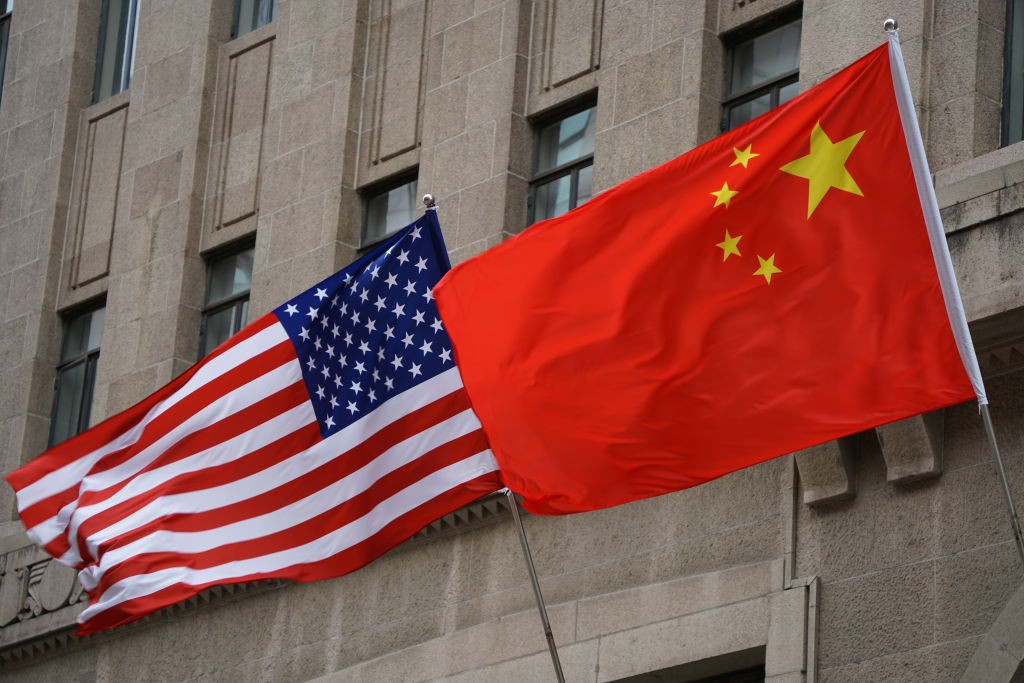 |
| China has replaced the US and Europe as the largest investor in Africa. (Source: Getty Images) |
The European Union (EU) could also do more in what it does best: striking trade deals and using them as a way to reduce carbon emissions worldwide.
This problem is not just about Europe and China. After decades of steady improvement in all major aspects of people’s lives, the world is “in reverse gear”.
The number of people facing starvation is rising, threatening to return to 2008-2009 levels. Wars are raging in Gaza, Sudan, Syria and Lebanon. The world has not seen so many civilian casualties since 2010.
Whatever happens, the Trump administration is unlikely to reverse Washington’s “less interventionist” policy. It is also unlikely to lead any major initiatives on peace, climate change or trade liberalization. The world is alone and the United States will not come to its rescue.
No one knows what will happen to America. It may be that Trump’s return will be largely a continuation of the past 10 years. It may be that tariffs, sanctions or institutional abandonment will make the economy less relevant to the rest. But this is what the American people have chosen, and the rest of the world will simply have to live with it.
In the meantime, the only thing the world can do is learn to work together better without becoming so dependent on each other.
Source: https://baoquocte.vn/ong-trump-tai-dac-cu-tong-thong-my-day-la-dieu-trung-quoc-eu-va-phat ...





![[Photo] General Secretary To Lam receives the Director of the Academy of Public Administration and National Economy under the President of the Russian Federation](/_next/image?url=https%3A%2F%2Fvphoto.vietnam.vn%2Fthumb%2F1200x675%2Fvietnam%2Fresource%2FIMAGE%2F2025%2F12%2F08%2F1765200203892_a1-bnd-0933-4198-jpg.webp&w=3840&q=75)




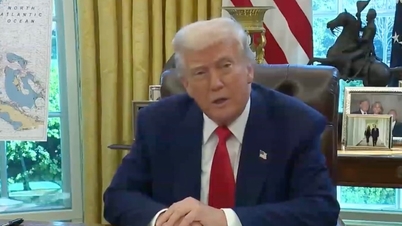

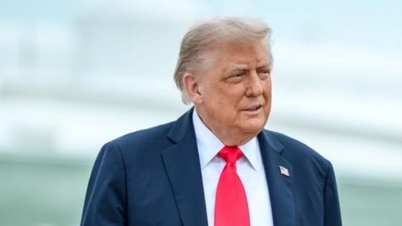
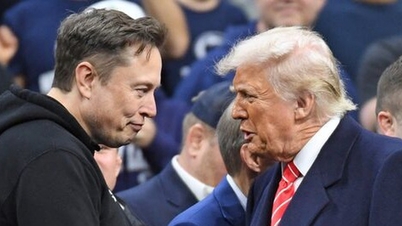

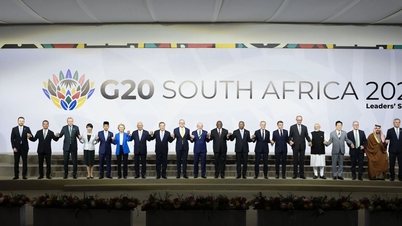







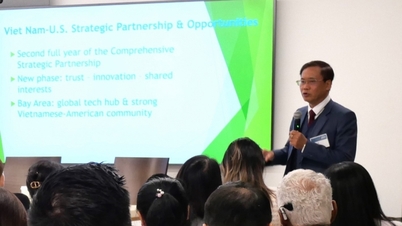










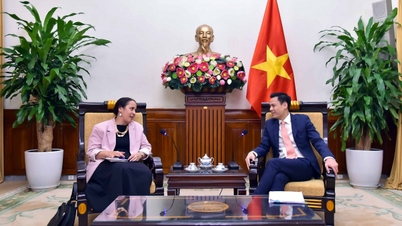





















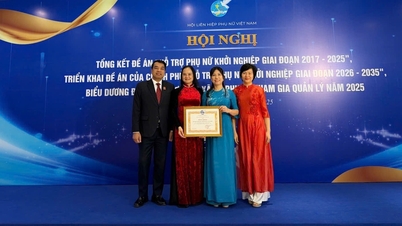























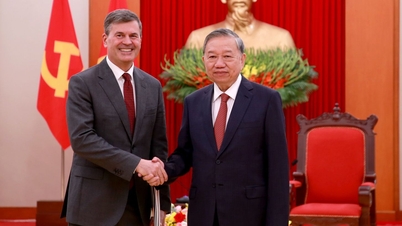
































Comment (0)